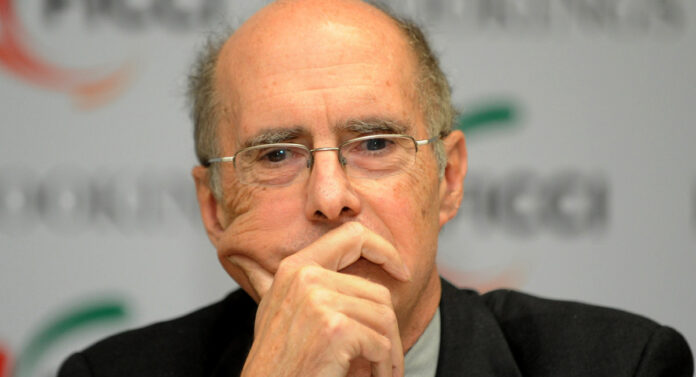SUBJECT: DEPUTY SECRETARY’S MEETING WITH ARMENIAN FOREIGN MINISTER ARZOUMANYAN
Classified by: Jame’s F. Collins, Ambassador at-Large, S/NIS, Department of State. Reason: 1.5 (b, d).
- Summary: The Deputy Secretary Strobe Talbott, and later S/NIS Ambassador Collins, met with Armenian FM Arzoumanyan February 28. The Deputy Secretary hoped that with three strong countries in the chair, we could make progress on resolving the Nagorno-Karabakh conflict peace this year. He sought Arzoumanyan’s views on next steps. Arzoumanyan asserted that the bilateral channel was no longer usable and proposed a “three plus three” format, but backtracked quickly when the Deputy Secretary and Amb. Collins objected; he fell back to a position of waiting to see whether the Azerbaijanis could come up with peace proposals. Arzoumanyan sought U.S. help in opening the Turkish-Armenian border; he was concerned that plans for regional transportation links might bypass Armenia. The Deputy Secretary declared U. S. willingness to use our good offices to help Armenia and Turkey improve relations.
- The Deputy Secretary met Arzoumanyan for 45 minutes February 28, after which Arzoumanyan continued the discussion for another hour with Amb. Collins. Also present on the Armenian side were MFA spokesperson Arsen Gasparian, Armenian Ambassador to the U.S.- Shugaryan and his DCM Tatoul Markarian. Sitting in on the U.S. side were S/NIS Herbst, EUR/CASA Young, S/NIS/RA Remler and D staffer Goldberg. EUR/CASA Mayhew also sat in on the meeting with Ambassador Collins.
- The Deputy Secretary -led off by stressing that the U.S. wants to make a material in efforts to resolve the Nagorno-Karabakh conflict. He would hold discussions on it next week in Paris and Moscow, capitals of the other co-chairs. The troika was not a bad outcome. We could make the-most-of our relations with France, and we could use the troika in a positive sense to test the proposition that_the.U.S., and Russia can genuinely cooperate on a regional conflict close to the Russian Federation. How did Arzoumanyan see the coming challenge?
- Arzoumanyan replied it would be difficult to go on with talks in the bilateral channel. It was difficult domestically, the NK leadership was jealous, and the Azerbaijanis have not provided the_promiced paper embodying their proposals. Arzoumanyan said talks could only proceed with NK Armenian patticipation. He proposed a “three plus three” format (U.S., Russia, France, Azerbaijan, Armenia, NK).
- The Deputy Secretary replied that a “3+3” in not the right format. Now is not the time to inject Stepanakert into the Yerevan-Baku dialog. It would reduce progress. Though acutely respectful of the workings of Armenian democracy, it was up to the GOAM to prepare public opinion for compromise. “3+3” format would not lead public opinion to expect compromise. Collins added that presidents Aliyev and Ter-Petrossian must take some basic decisions, and that means the bilateral channel. Stepanakert has a role in the Minsk Group, but trying to inject the NK Armenians into the bilateral channel would inject an argument that is not about substance and would set us back another six months. (Collins stressed these points, and gave greater detail, in his subsequent meeting with Arzoumanyan.)
- Arzoumanyan backtracked. He stressed the need for an Azerbaijani interlocutor who had a “100 percent mandate” from Aliyev, “But shuttling around to European capitals to exchange general ideas is no longer acceptable.” He noted that the Armenian MFA would be more active on NK under his stewardship, and that he was ready to meet “my good friend” Azerbaijani FM Hasanov to discuss the issue. Later, with Collins, Arzoumanyan said that an Azerbaijani paper would help revitalize the bilateral channel; Yerevan could consult closely with Stepanakert on it.
- Arzoumanyan did not, however rule out a renewal of the demands that NK participate. In the Collins meeting he said the NK Armenians, having occupied so much of Azerbaijan’s territory, felt it was up to Azerbaijan to come to them and talk before they would compromise. In Armenia, too, it was felt that if Azerbaijan considers NK to be part of itself, and the NK Armenians to be rebellious Azerbaijani citizens, then Azerbaijan should sit down and talk with them as governments did all over the world.
- A discussion on Iran (septel) led Arzoumanyan to make the point that Armenia needed alternatives. “We need the border with Turkey.” The Deputy Secretary replied that the problem had many dimensions. “The Turks had significant interests and could play a role. We wanted better relations between Armenia and Turkey and our good offices could be useful to that end. The Deputy Secretary remained in close touch with the Turks, especially with U/S Oymen.
- Arzoumanyan renewed this point later with Collins. He recounted his talks with FM Ciller, including her offer to open free trade if Armenia would recognize the Lisbon principles (Comment: it is not clear that this offer, if in fact made, was an official Turkish position. End Comment). Arzoumanyan noted that he had said this would be difficult for Armenia, since it had just rejected them, although just three days ago in Parliament the government announced that a solution must be based on compromise.
- The Turks, Arzoumanyan continued, were under pressure from their business community. He observed that Turkey has signed an agreement with Georgia to lay 157 km of track to bypass Armenia. Arzoumanyan had told the Turks that this would be expensive, and in any case the climate would make the new line inoperable for four months of the year. Turkey wouldn’t need the line if it opened its border with Armenia. Armenia was ready to offer its rail system to transport Turkish aid to Azerbaijani refugees. But the Turks did not respond.
- Collins replied that Armenia had a strong interest in being included in regional development. Development would be distorted unless we could find our way through the political problems. Amb Collins pointed out that 1997 would be a year of decisions on pipelines and transportation. If Armenia were not in a position to participate in regional development it would be costly to Armenia, and in no one’s interest.
- Collins asked about the dynamics_of_those working on NK policy in Moscow. Arzoumanyan asked whether Pastukhov would assume_the Minsk Conference Co-Chair. He said Pastukhov was a “typical Soviet bureaucrat” who enjoyed good relations with Yeltsyn and could sometimes see Yeltsin without Rrimakov present. Pastukhov also had good relations with Azerbaijani ambassador to Moscow; they spent a lot of time together drinking and eating shashlik. The Armenians deal with Yukalov on a daily basis but the best Russian expert is still Kazimirov, even though he is now in Costa Rica. Retired Ambassador to Egypt Agopov, now an adviser to Primakov, is also a player, as is Serov, the Chair of the Armenian-Russian economic commission.
- Collins said we must in any case engage Primakov. He noted that we were developing ideas our own to give the Deputy Secretary. The question was how best to approach matters of substance. (One could present an entire plan, or one could work on one element at a time. One could work on a core package of tough issues amenable to discussion in separate working groups. What thoughts did Armenia have on approaching substance, and what comments did it have on the Russian paper?.
- Arzoumanyan said that although Armenia could / work with the Russian paper, it put Azerbaijan’s territorial integrity first, and “if you show that to Robert (Kocharyan), he’ll throw the whole paper out. In engaging NK, you must be careful not to give them things immediately that they will reject; you must save them until later.” He suggested that the best elements with which to start off involved the security of NK.
- Collins ended with a request that President Ter-Petrossian think through the significance of the troika. Before, there was only one government with both interests in the region and major responsibility in the Minsk Group. Others had interests, but not the responsibility. Now, three important countries with important interests also had responsibilities. There was a growing constellation of interests in the U.S, France and Russia to push the parties. Ter-Petrossian should not be blind-sided: there will be pressure. The U.S. wanted to work with the GOAM to inject some creativity into the negotiations and energize real movement. However, the U.S. would insist that the parties accept responsibility for their agreements; the solution, in the end, must come from the parties.
https://docs.rferl.org/hy-AM/2023/02/02/08550000-0a00-0242-23de-08db0559d6f7.pdf













